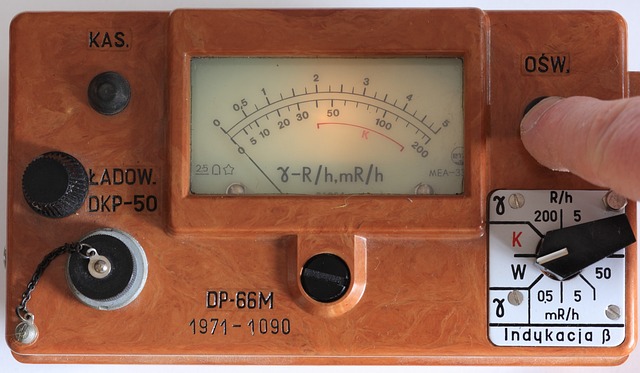TL;DR:
Background checks, comprising credit and rental history evaluations, are crucial in the rental application process. They offer landlords insights into tenants' financial stability and past behaviors, influencing decisions on vacancies and damage risks. Positive checks ensure informed landlord decisions while negative results may lead to stricter criteria. While sometimes seen as a hurdle by tenants, these checks protect both parties' interests, making them essential for secure long-term tenancies. Effective implementation involves verifying key information like rental history and credit scores, with best practices focusing on quality and quantity of provided documentation.
In today’s digital era, understanding the intricate relationship between background checks and rental renewals is paramount for both landlords and tenants. This article delves into the profound impact of background checks during the rental application process, specifically exploring how they influence renewal decisions. We examine credit and rental history checks, tenant background screenings, and the subsequent effects on both parties, providing best practices for a balanced and effective implementing approach.
- Understanding Background Checks in Rental Applications
- The Role of Credit and Rental History Checks
- How Tenant Background Checks Affect Renewal Decisions
- Exploring the Impact on Both Landlords and Tenants
- Best Practices for Implementing Background Checks in Renting
Understanding Background Checks in Rental Applications

Background checks play a pivotal role in the rental applications process, offering landlords crucial insights into potential tenants’ pasts. These checks go beyond verifying basic information, delving into an individual’s credit history, employment status, and most significantly, their rental history. By conducting thorough background checks, landlords gain a comprehensive understanding of tenant reliability, financial stability, and potential red flags that might indicate future issues.
In the world of renting, the impact of these checks is profound. A positive rental history check ensures landlords can make informed decisions, reducing the risk of vacancies or costly damage. Conversely, negative results may prompt further investigation, potentially leading to more stringent criteria for acceptance. This aspect of the rental application process, though sometimes viewed as a hurdle by prospective tenants, serves as a critical mechanism to protect both parties’ interests in the long term.
The Role of Credit and Rental History Checks

Background checks play a pivotal role in the rental application process, especially when it comes to evaluating potential tenants. These checks, which include both credit and rental history evaluations, provide landlords with crucial insights into an applicant’s financial stability and past tenancy behavior. By examining rental applications through this lens, landlords can make informed decisions about renting to new tenants.
Credit checks offer a window into the borrower’s financial health, while rental history checks verify their previous leasing experiences. The impact of these background verifications on rental renewals is significant. A solid credit score and unblemished rental history enhance a tenant’s chances of securing long-term tenancy, as it demonstrates reliability and responsibility. Conversely, discrepancies or red flags in these checks may prompt landlords to reassess, potentially influencing their decisions regarding renewal terms or even rental approvals.
How Tenant Background Checks Affect Renewal Decisions

Tenant background checks play a pivotal role in the rental application process and significantly influence renewal decisions for several reasons. These checks offer landlords a comprehensive view into a prospective tenant’s financial health, employment status, and previous rental history. By conducting thorough background checks rental applications, landlords gain valuable insights that extend beyond what is disclosed on paper. This includes credit checks renting to assess financial responsibility, rental history checks to verify their track record as tenants, and sometimes even criminal background checks to ensure the safety of the property and other residents.
The impact of these checks can be profound. A clean and positive rental history, coupled with strong credit scores, increases the likelihood of a renewal offer. Conversely, discrepancies or red flags in the tenant background checks may prompt landlords to decline renewal requests. This is particularly true for properties with high turnover rates or those where maintaining consistent and reliable tenants is paramount. Therefore, prospective tenants should approach the rental application process with diligence, ensuring their financial standing, employment stability, and rental history are as impressive as possible to enhance their chances of securing a renewal.
Exploring the Impact on Both Landlords and Tenants

Background checks play a significant role in shaping the rental application process, with implications for both landlords and tenants. For landlords, these checks are a crucial tool to assess potential risks associated with renting their properties. By examining tenant history, including employment records, criminal backgrounds, and financial stability through credit checks, landlords can make informed decisions about who they rent to. This is especially important in ensuring the long-term maintenance of their investment properties.
Tenants, on the other hand, often view background checks as a necessary evil when applying for rental spaces. While it may seem like an added hurdle, these checks provide tenants with peace of mind, knowing that their application is being thoroughly vetted. A clean rental history check can boost a tenant’s chances of securing a desirable property, especially in competitive markets where landlords receive numerous applications. Understanding the impact of background checks on both parties highlights the importance of striking a balance between landlord protections and tenant rights during the rental application process.
Best Practices for Implementing Background Checks in Renting

When implementing background checks as part of the rental application process, it’s crucial to balance thoroughness with fairness. Landlords should focus on verifying essential information that directly impacts a tenant’s ability to fulfill their lease obligations. This includes checking rental history and credit scores, but also considering other factors like employment verification and previous landlord references. Using a comprehensive yet non-discriminatory approach ensures that you find reliable tenants while avoiding unfair biases.
Best practices involve reviewing both the quantity and quality of provided documentation. Requesting official documents such as pay stubs, W-2 forms, or bank statements for income verification provides more accurate data than relying solely on self-reported information. Similarly, contact previous landlords to confirm rental history rather than solely relying on a tenant’s own account. This multi-faceted approach maximizes the impact of checks on renting by identifying responsible and trustworthy applicants, thereby enhancing the overall rental experience for both landlords and tenants.






